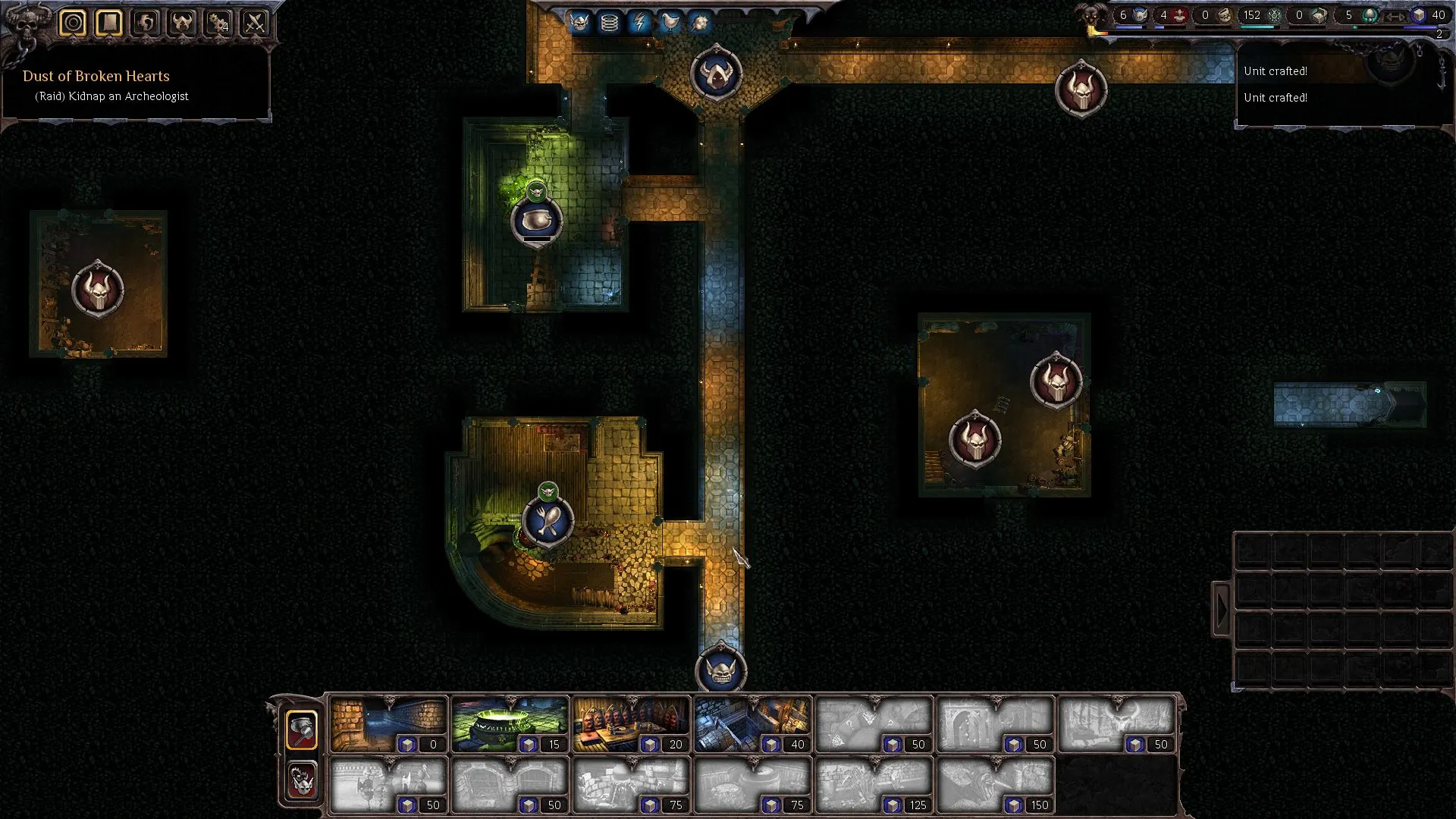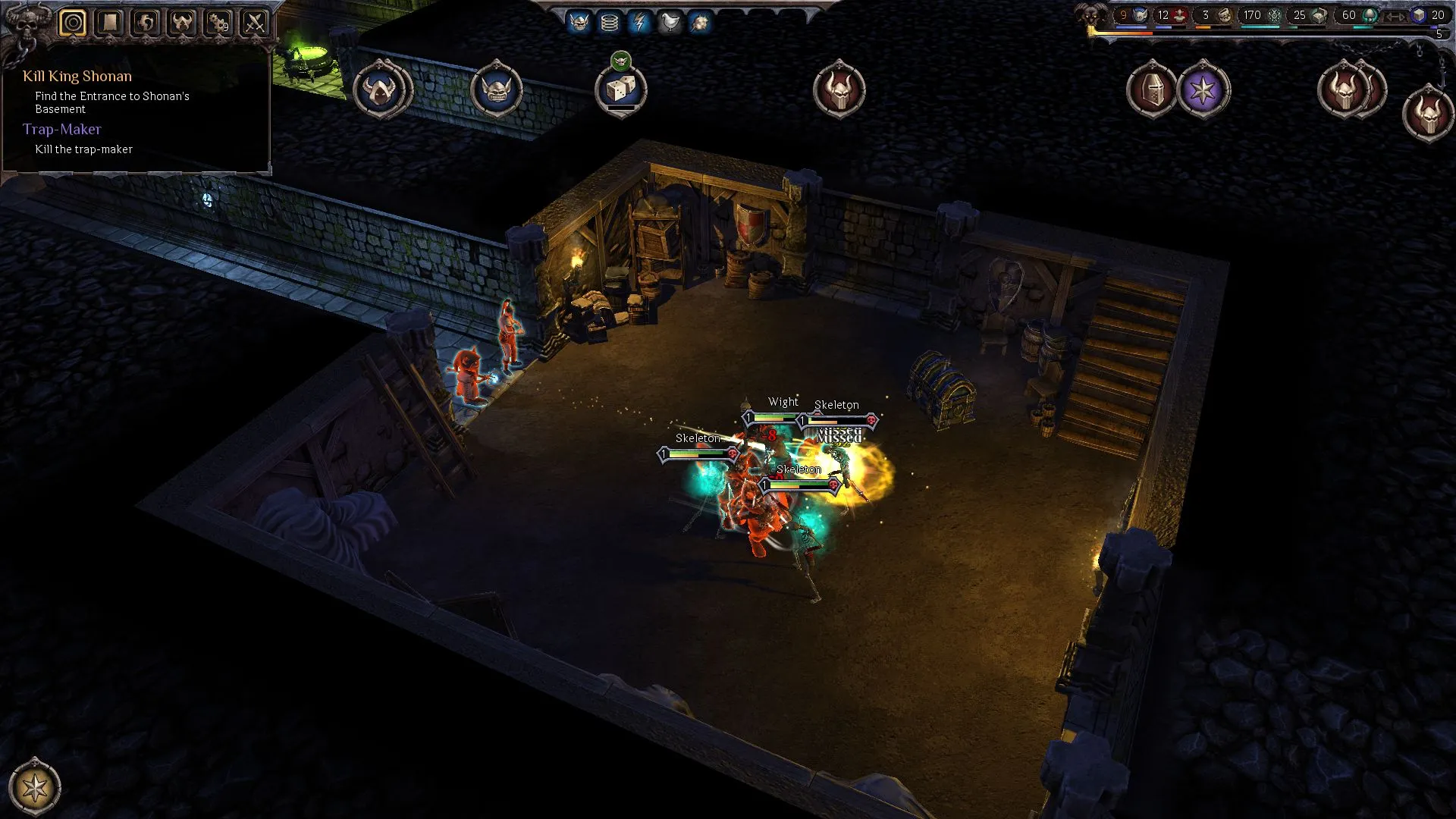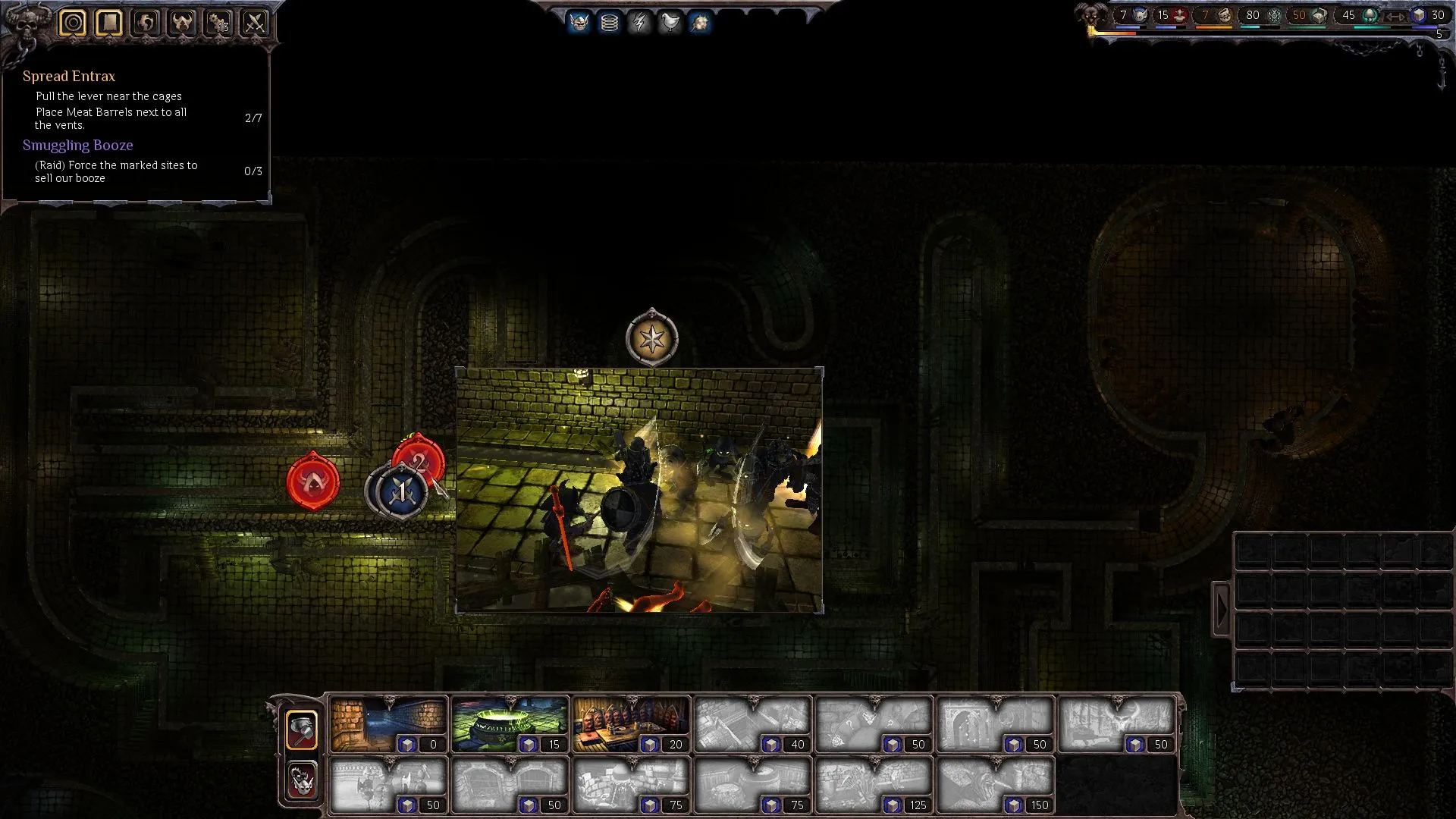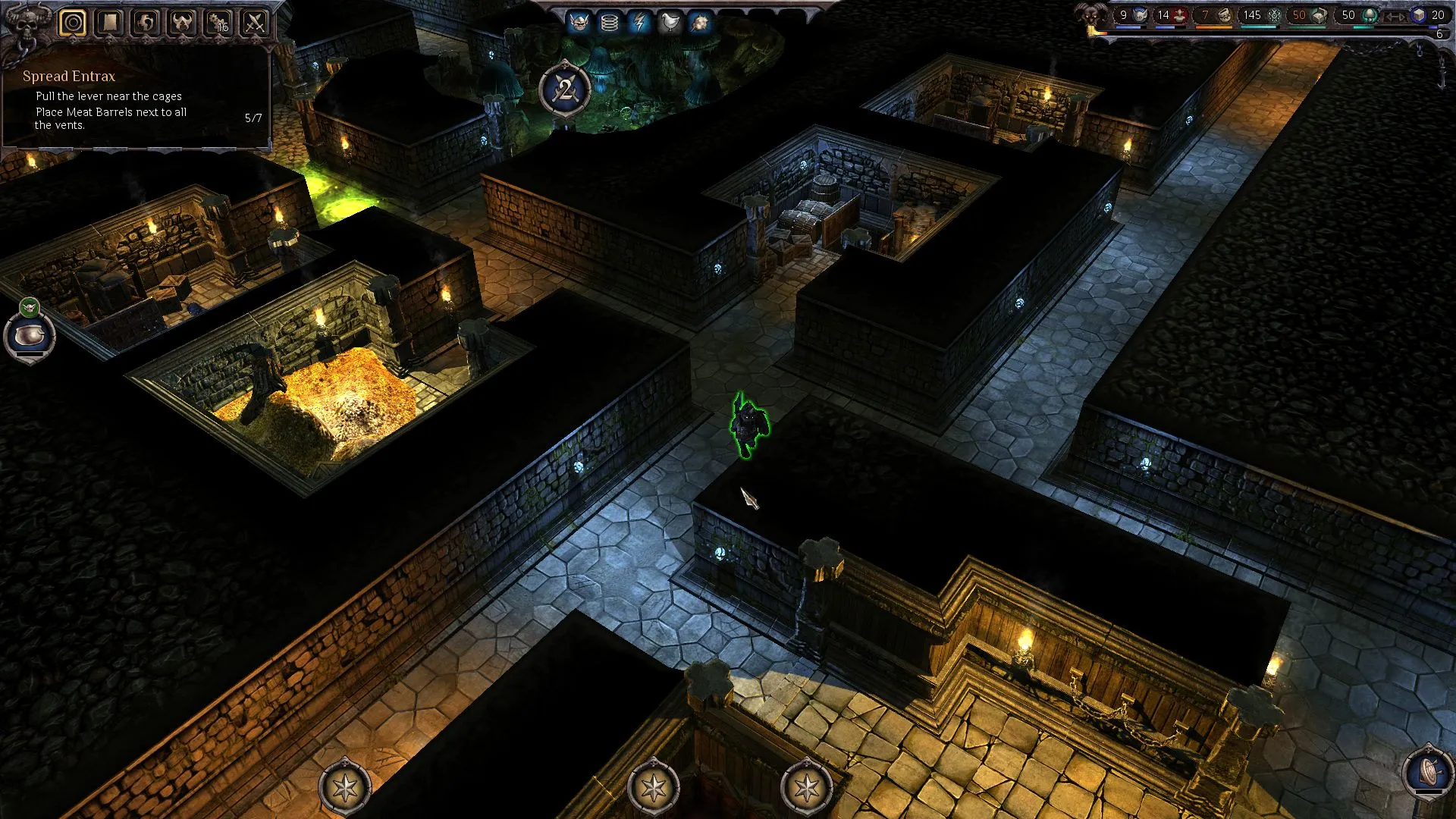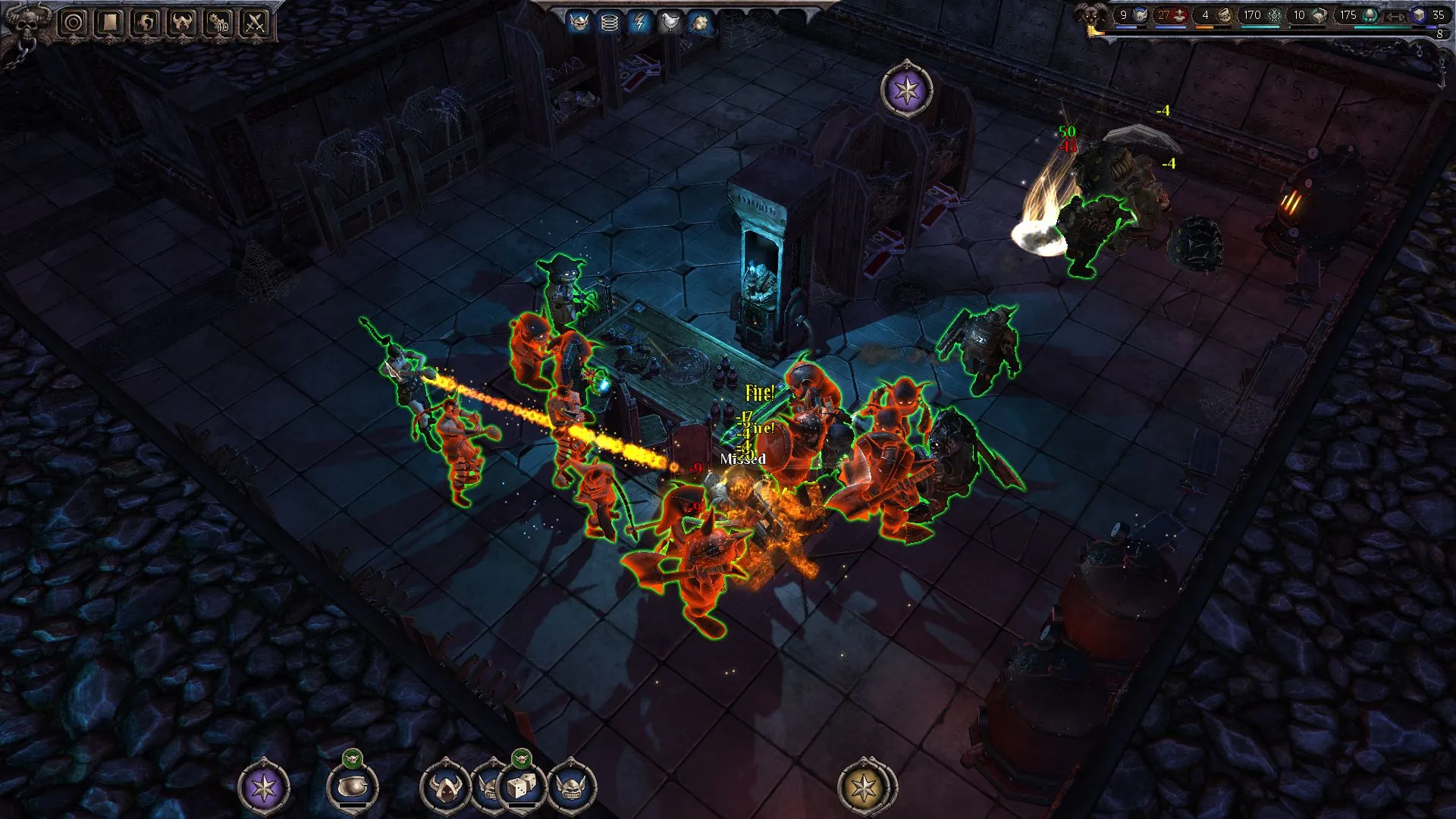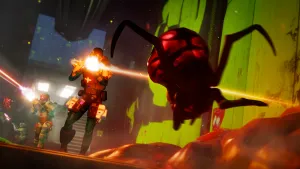Impire Review

Giving games the benefit of the doubt is a noble goal. No matter how pure your intentions are, though, any game still has to meet you halfway. Like the lazy Adam in Michaelangelo's famous painting, Impire seems unconcerned with making any more than a token effort to entertain. The dungeon-builder revels in the cartoonishly twisted evils of its buffoonish characters, but Impire's soulless design fails to turn that premise into anything approaching fun.
Neither of the two phases of playing through a scenario in Impire is enjoyable, though each action you take fits neatly into the overall structure and is easily accomplished with the well-crafted interface. Carving your two-dimensional dungeon out of the bedrock and designating rooms for spawning minions, torturing captured heroes, farming mushrooms, and other nefarious tasks is simple. Fifteen minutes later, you've plumbed the ankle-deep depths of Impire's dungeon-building.
The layout hardly matters. Once you've ticked off all the boxes in your construction checklist, you're done. Sure, you can lay traps for invading heroes and make sure your treasure chambers aren't adjacent to the entrance of your lair, but that's the end of it. Forget about any kind of simulation aspect; neither defense nor economic efficiency is affected by your decisions in any material way. Resources are gained primarily by raiding the overworld, which in practice means sending a squad of minions off the map for three minutes and collecting the spoils they return with. Traps are hilariously incapable of killing anything, so defending your domain is simply a matter of teleporting your biggest squads on top of enemies for a trivial mana cost, then paying that inconsequential price again to send them back on their way.
The second part of an Impire scenario, which takes place concurrently with the first, is even less entertaining. Your squads of minions (each consisting of one healer, one tank, and two of the best other units you can afford) crawl through preset enemy dungeon layouts, beating up the foes standing between them and your objectives. Tactics are impossible to execute, as giving any orders prevents your squad AI from using its powers appropriately. Tanks don't protect their fellows and healers don't heal if you give a direct attack order, for example. The idea of building a better army and then watching the AI battle it out works fine in other titles where it's a sideline to the real meat of managing a simulation, like in Majesty. In Impire, the lack of anything else to do makes the non-interactive combat just another frustration.
The story attempts to channel Majesty's fantasy-parody wackiness into the realm of squirrely demons and bumbling would-be maniacal conjurers. The effort is sadly crushed under the weight of badly acted, bland dialogue set in interminable cutscenes that only illustrate the lack of fine details in the character models and animations. I'd recommend just skipping the cutscenes, but that only accelerates your descent into another boring section of gameplay.
Multiplayer is no better. Racing against human- and bot-controlled enemy dungeon masters is less terminally dull than the turgid single-player campaign, but the gameplay shares all of the problems found offline and trades the lame storyline for infuriating connection problems.
I wish I had nicer things to say about Impire, but my disappointment with its failure to turn any of its concepts into interesting interactive gameplay is total. As cool as the concept is, gamers interested in building an underground lair and tormenting would-be heroes are still stuck waiting for a worthy successor to 1997's Dungeon Keeper.
